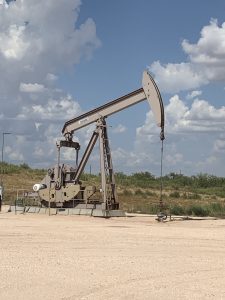
Oil at $20 per barrel? $40? Even $60… It May Not Be Enough to Keep Shale Bond Investors from Losing Everything
As I write this post in Rome, gasoline prices are about 1.32 euros per liter. That’s still much higher than U.S gas prices. While higher pump prices generally mean more profits for oil companies and their shareholders, don’t expect a return to normal worldwide prices soon. Unfortunately, that means more oil exploration and production companies will likely fail.
A Wall Street Journal article claimed that Goldman Sachs made a startling statement claiming oil prices could fall to as low as $20 a barrel! We don’t see prices falling that low but most experts agree that prices won’t increase anytime soon.
Virtually all experts agree that the boom in shale oil will continue to weaken. The question is by how much. There is such a glut of oil on the market today, that means prices aren’t expected to strengthen anytime soon. At prices below $60 or $70 per barrel, many producers simply can’t make any money. Yet if they cut production that they lose whatever revenue stream they have.
All of this information is extremely relevant for the thousands of investors stuck holding shale bonds. A shale bond is a debt instrument issued by oil exploration and production companies. Most shale bonds are junk quality and many have already defaulted.
Shale bonds have always been an extremely risky investment. They are suitable for institutional investors yet many stockbrokers and investment advisors marketed them to unsuspecting individuals.
The lure of shale bonds, of course, is their high yield. If the company goes under, however, the bonds are worthless.
Because they are so speculative, these investments don’t belong in the portfolios of most individual investors. We have found them, however, in portfolios of elderly retirees and folks who were looking for a conservative alternative to a traditional bond fund.
So how did so many investors wind up with worthless junk shale bonds? Stockbrokers!
Stockbrokers hoping to make higher commissions marketed many of these bonds. Many brokers thought they were an easy sell because of the bonds’ high rates of return. If the brokers properly explained the risks associated with these investments, they might be off the hook but even then they should never have been marketed to those needing ready access to their money (retirees) or conservative investors.
As long as oil prices remained high, everyone made money. But the handwriting had been on the wall for years and folks within the industry know that world oil prices are inherently speculative.
The Goldman report notes that OPEC has not cut production and Iran is threatening to pump as much oil as it can. When production is curtailed, prices go up. With no agreement to cut production, however, and so much extra oil on the market right now, prices will probably drop even more before they go up.
If you have purchased shale bonds and can’t sell them or have bonds that are now worthless, give us a call. Suing the oil companies isn’t likely to get your money back – many are broke. But the stockbrokers who sold these bonds and the brokerage firms that employed them may be on the hook for any losses.
Suing a brokerage firm isn’t as difficult as it sounds. Most cases can be handled on a contingent fee basis meaning no legal fees unless there is a recovery.
Need more information? We have several text searchable energy sector posts in our blog and have a shale bond loss recovery page. Or contact attorney Brian Mahany at or by telephone at . All inquiries are completely confidential and there is never a fee for the consultation. We handle cases nationwide.
MahanyLaw – America’s Fraud Recovery Lawyers
[Minimum loss size generally $250,000 but sometimes we can find other investors who lost money with the same firm allowing us to consolidate the cases and help investors with smaller losses. Depending on the brokerage firm involved, we often co-counsel with other law firms.]

